Posted on 12/19/2025

The first snow shows up, traffic slows to a crawl, and you watch cars sliding around on every corner. Somewhere in that mess, you start wondering if your all season tires are really enough or if this is the year you finally put winter tires on the list. The answer isn't the same for everyone, but there are clear signs pointing you toward a dedicated winter setup. Why Winter Tires Matter More Than Many Drivers Think Winter tires are not just “snow tires” from decades ago. Modern designs use softer rubber compounds and specialized tread patterns that stay flexible and grippy when the temperature drops. That flexibility is what lets them bite into cold pavement, slush, and packed snow instead of feeling like hard plastic. All season tires try to cover a wide range of conditions, which means they become a compromise once it gets genuinely cold. The tread and rubber that work fine in spring and fall often stiffen up when the thermometer drops, and that is ... read more
Posted on 11/28/2025

Illinois driving asks a lot from a family vehicle. One week brings slush and potholes, the next brings crosswinds and heavy rain, then summer heat bakes everything dry. The Honda CR-V fits those changing demands because its size, traction options, and day-to-day efficiency stay balanced instead of chasing one extreme. The Four-Season Problem Set Winter: plowed ridges at intersections, black ice on shaded roads, road salt that corrodes brakes and hardware. Spring: deep puddles, broken pavement from freeze–thaw cycles, surprise potholes on side streets. Summer: long highway runs with roof boxes, high cabin loads, hot stop-and-go traffic. Fall: wet leaves on corners, early morning fog, quick temperature swings that stress batteries. The CR-V handles this mix without asking the driver to baby it. Traction and Ground Clearance That Actually Help Unplowed turn lanes and chunky snow at driveway ends are common. The CR-V’s ground clearance k ... read more
Posted on 10/31/2025
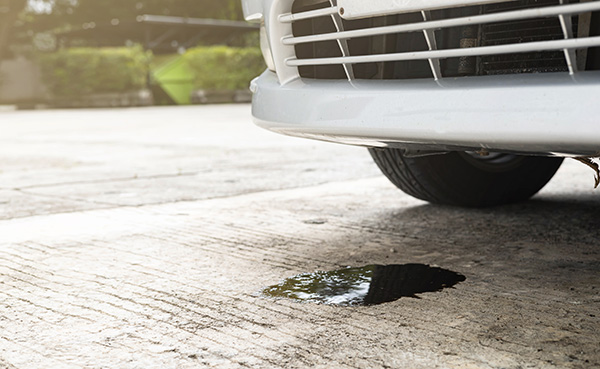
A few drops of oil on the driveway might not look like a big deal. Many drivers top off the level and keep going. The truth is that small oil leaks often turn into expensive problems, and the damage can happen quietly long before a warning light appears. If you have noticed spots under your car or a burning oil smell after parking, now is the time to understand what is leaking and why it matters. Why Engines Leak Oil in the First Place Engines rely on seals and gaskets to keep oil where it belongs. Heat cycles, age, and vibration slowly harden rubber and flatten gasket material. Common leak points include valve cover gaskets, oil filter housings, oil pan gaskets, cam and crank seals, and the oil pressure sender. Turbocharged engines add more heat, which accelerates wear on nearby seals. Even a loose or incorrectly installed oil filter can seep. Small Leak, Big Risk to Oil Pressure Oil is not just a lubricant. It also creates pressure that feeds cr ... read more
Posted on 9/26/2025

Cold weather puts extra pressure on your car, but it's often the driver’s habits during this time that cause the most long-term damage. From letting your car idle too long to skipping winter maintenance, some routines that seem harmless may be setting your vehicle up for problems later on. Here are seven winter driving habits that can gradually wear down your vehicle and lead to unexpected repairs. 1. Excessive Idling on Cold Mornings Warming up the engine for a few minutes is fine, especially when scraping the windshield or getting ready to leave. But letting your car idle for fifteen or twenty minutes every morning doesn't do the engine any favors. In fact, prolonged idling allows fuel to mix with oil, especially when the engine is still cold. This can reduce oil effectiveness over time and lead to sludge buildup inside the engine. Modern engines are designed to warm up more efficiently by driving gently, not by sitting still for long stretches ... read more
Posted on 8/29/2025

One of the most common mistakes new drivers make is assuming that earning a license means they’ve mastered driving. In reality, the license is only the beginning. True skill develops over years of practice, exposure to diverse road conditions, and the formation of good habits. Overconfidence can cause new drivers to speed, follow too closely, or underestimate hazards. While confidence is important, it should never replace caution and awareness. Misjudging Speed and Following Distance Learning to judge speed and space takes time, and many new drivers struggle with this. They may not realize how long it takes to safely stop at higher speeds or how much distance is needed to merge into traffic. Following too closely, known as tailgating, is especially dangerous because it leaves little time to react if the car ahead brakes suddenly. Experienced drivers use the “three-second rule,” leaving at least three seconds of distance between their car and the one ... read more
Posted on 7/29/2025
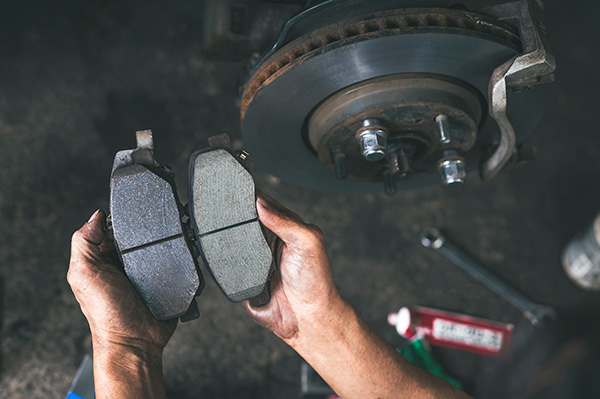
Your vehicle’s brake system is one of the most crucial components in terms of safety. While many parts work together to bring your car to a stop, brake pads are at the front line of that process. Over time, they wear down and need to be replaced—waiting too long to do so can reduce braking performance, damage other components, and put you at risk on the road. Knowing how to recognize the signs of worn brake pads can help you stay ahead of problems and maintain reliable stopping power in all driving conditions. How Brake Pads Work Brake pads press against your vehicle’s brake rotors to create the friction needed to slow the wheels. When you hit the brake pedal, hydraulic fluid transfers pressure through the system, forcing the calipers to squeeze the pads onto the spinning rotors. Because this process generates heat and friction, brake pads are designed to wear down gradually. Different materials, such as semi-metallic, ceramic, or organic, wear at ... read more
Posted on 6/27/2025
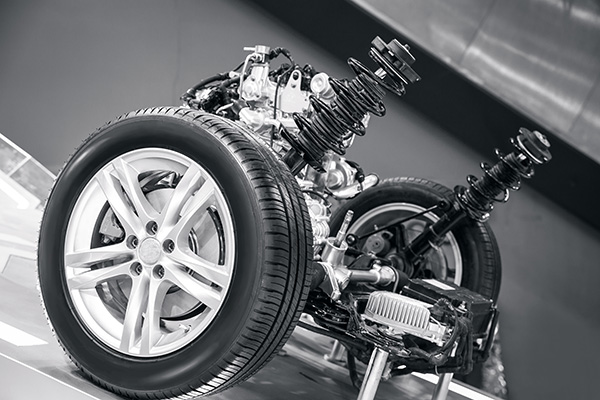
Your vehicle’s suspension system plays a critical role in both comfort and safety. It’s responsible for keeping your ride smooth, your tires in contact with the road, and your steering stable. Most people think about shocks and struts when they hear "suspension," but the system also includes springs, control arms, bushings, and sway bars. When any of these components begin to fail, your car can behave unpredictably. If you’ve been noticing strange sounds, an uncomfortable ride, or a vehicle that doesn’t handle like it used to, the suspension might be the reason. Here are five key symptoms that often point to trouble. 1. Bouncy or Rough Ride If your car feels like it’s bouncing excessively over bumps, or if every crack in the pavement seems exaggerated, your shocks or struts might be worn out. These parts are designed to absorb the energy from bumps and dips in the road. When they lose their effectiveness, that energy gets tran ... read more
Posted on 5/30/2025
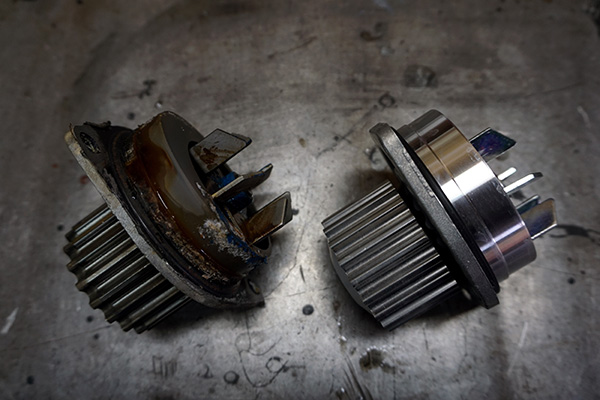
Overheating is a clear sign that your engine isn’t being cooled properly, and one common culprit behind temperature spikes is the water pump. Most drivers expect to see a puddle of coolant on the ground when there's a water pump problem, but not all pump failures involve visible leaks. In fact, a bad water pump can absolutely cause overheating even when the cooling system appears sealed. Understanding how the water pump works and how it can fail silently can help you prevent serious engine damage and avoid unexpected breakdowns. How the Water Pump Works The water pump’s job is to circulate coolant throughout the engine, radiator, and heater core. This flow allows heat to be drawn away from critical engine parts and released through the radiator. The pump is typically driven by a belt and pulley system connected to the engine. Some newer vehicles use electric water pumps, but the principle is the same: keep coolant moving to maintain stable temperatur ... read more
Posted on 5/9/2025
.jpeg)
Kamphaus Is Now Proudly Offering Service Contracts When you buy a car, most people have at least a vague notion of the regular maintenance the car will need over it's life time. Most maintenance expectations are under budgeted for by the average person, especially on a used car purchase, even with a good service history. Along with the used car pre-purchase inspections that we offer, we are proud to offer service contract to help with those maintenance concerns. With an inspection of your vehicle, that includes evaluation of Carfax service history and vehicle scan, we can evaluate your vehicle for the concerns you are going to see in the next 6-12 months and help you build a service contract that is right for you and your car. Extended Warranty vs. Service Contract Most extended warranties do not cover wear items like brakes or service interval items like oil changes. While some offer maintenance contracts, they do not usually ... read more
Posted on 4/28/2025
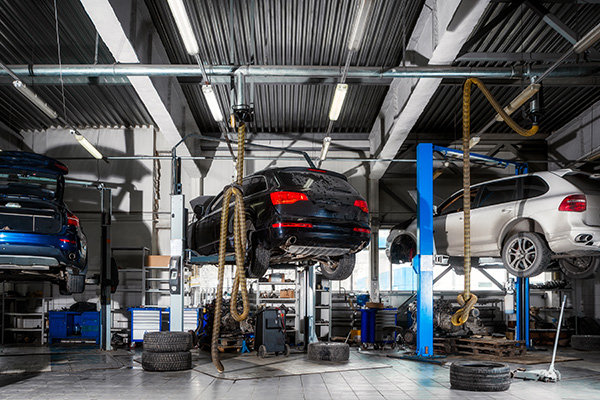
It’s a common question for vehicle owners: Will going to an independent shop void my car’s warranty? Many drivers are surprised to learn that under federal law, you can have your vehicle serviced or repaired at a trusted local shop without losing your warranty coverage. Still, there are a few things to understand to make sure you’re protected. Here’s what you should know about how warranties work and your rights as a vehicle owner. The Magnuson-Moss Warranty Act The Magnuson-Moss Warranty Act is a federal law that protects consumers from being forced to use dealership services to maintain a warranty. According to this law, a manufacturer can’t require you to use only OEM parts or dealership service unless they provide those services or parts for free. This means you’re legally allowed to choose who performs your maintenance and repairs, as long as the work is completed properly and at the recommended intervals. Dealer vs ... read more